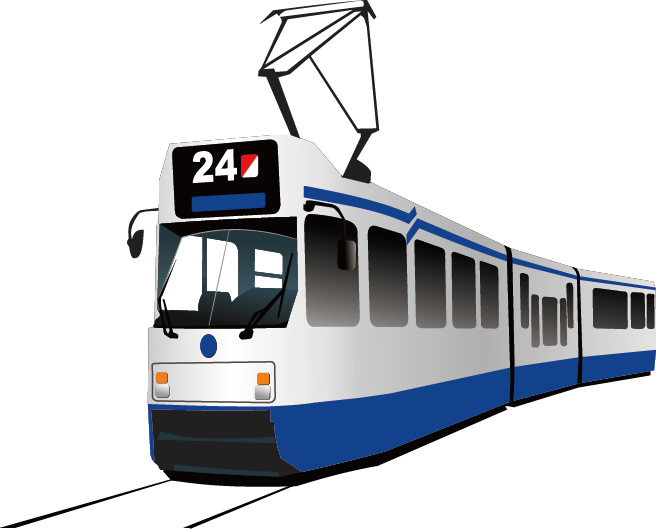
This image has format transparent PNG with resolution 656x529.
You can download this image in best resolution from this page and use it for design and web design.
Tram PNG with transparent background you can download for free, just click on download button.
A tram (also tramcar; and in North America streetcar, trolley or trolley car or train car, and in Australia as tram or light rail is a rail vehicle which runs on tramway tracks along public urban streets, and also sometimes on a segregated right of way. The lines or networks operated by tramcars are called tramways. Tramways powered by electricity, the most common type, were once called electric street railways (mainly in the United States) due to their being widely used in urban areas before the universal adoption of electrification. In the United States, the term tram has sometimes been used for rubber-tyred trackless trains, which are not related to the other vehicles covered in this article.
Tram vehicles are usually lighter and shorter than conventional trains and rapid transit trains. Today, most trams use electrical power, usually fed by an overhead pantograph sliding on an overhead wire; in some cases by a sliding shoe on a third rail, a trolley pole or a bow collector sliding on an overhead wire. If necessary, they may have dual power systems—electricity in city streets, and diesel in more rural environments. Trams are now commonly included in the wider term "light rail", which also includes grade-separated systems.
Tram lines may also run between cities and towns (for example, interurbans, tram-train) or even countries (Basel, Strasbourg), or be partially grade-separated even in the cities (light rail). Very occasionally, trams also carry freight. Some trams (for instance tram-trains) may also run on ordinary railway tracks, a tramway may be upgraded to a light rail or a rapid transit line, two urban tramways may be connected to an interurban, etc. For all these reasons, the differences between the various modes of rail transportation are often indistinct.
One of the advantages over earlier forms of transit was the low rolling resistance of metal wheels on steel rails, allowing the animals to haul a greater load for a given effort. Problems included the fact that any given animal could only work so many hours on a given day, had to be housed, groomed, fed and cared for day in and day out, and produced prodigious amounts of manure, which the streetcar company was charged with disposing of. Electric trams largely replaced animal power in the late 19th and early 20th century. Improvements in other forms of road transport such as buses led to decline of trams in mid 20th century. Trams have seen resurgence in recent years.
In this page you can download free PNG images: Tram PNG images free download